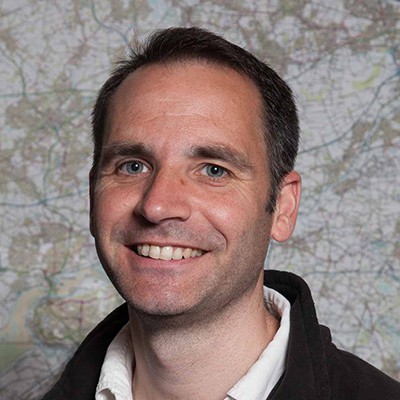Dr Graham Wilson
Senior Lecturer

Biography
Graham is a Senior Lecturer in Physical Geography in the Division of Humanities, Cultures and Environment. His current areas of responsibility include: BSc Geography Programme leader (2016-present); Global Environmental Change and Hazard Management research group co-ordinator (2016-present); Department / Programme Area research co-ordinator (2017-present); Research Excellent Framework Unit of Assessment 14: Geography and Environmental Studies co-ordinator (2017-present); Ethics committee member (2023-present).
Teaching and Supervision
Graham teaches in the area of earth and environmental sciences, specifically: palaeoclimatology; Late Quaternary sea-level change and coastal evolution; limnology and palaeolimnology; palaeoecology; isotope geochemistry; tidal wetlands; blue carbon; environmental contamination. Teaching-related duties and experience includes: programme leadership; undergraduate programme development; securing accreditation status for undergraduate programmes; module development and delivery; multiple module and strand leadership, including final year Dissertation; postgraduate research supervision (M.Res., M.Phil., Ph.D.); external examination of undergraduate programmes; external examination of postgraduate research.
Research and Knowledge Exchange
Graham’s research focusses on using sediment deposits to reconstruct past climate and sea-level. He has generated detailed fossil diatom records from European lake sediment sequences to help better resolve abrupt climate change events during glacials and interglacials, and to assess the character and pace of ecosystem response to rapid climate warming at glacial terminations. Exploring the mode and tempo of millennial-scale climate variability under evolving boundary conditions provides insights into tipping points in different parts of the Earth system and can facilitate a more detailed understanding of climate teleconnections and phase relationships between Earth system components. Graham also specialises in stable isotope analysis of lake sediments to reconstruct hydroclimate and sediment provenance, with current research focussed on applying these techniques to generate climate records of the last glacial-interglacial transition in the Durmitor mountains, SE Europe. This interval is the most recent example of rapid warming in the absence of anthropogenic forcing and is characterised by abrupt climate change events thought to involve components of the ocean-cryosphere system crossing critical thresholds, with associated impacts cascading through global climate systems. This research is providing insights into deglacial climate instability in SE Europe and addresses emerging questions about the character of abrupt events and their expression in a region where important atmospheric systems intersect. Graham also has a long-standing interest in sea-level research and led pioneering work into the development and application of stable carbon isotope and element geochemical analysis to reconstruct Holocene sea-level change in tidal marsh environments.